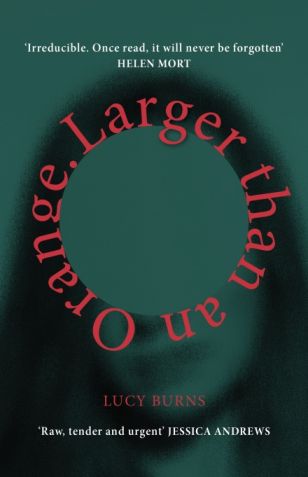The truth about abortion and what 'pro-choicers' don't want women to hear

Abortion - just like having a tooth removed! This is what abortion providers and activists would have us believe, but that description is very far from the reality.
The truth is indeed chillingly illustrated by a new book that describes in detail one's woman grief and shame following her own abortion, after she found herself pregnant following a drunken one-night stand.
Larger than an Orange by Lucy Burns, reviewed in The Times, conspicuously doesn't actually comment on the practice of abortion, and whether it's right or wrong at all. Rather it's a blow-by-blow account of Ms Burns' personal journey and experience – from her first request for termination, to a harrowing and graphic account of what happened, to the physical effects she endured for months after. And then the grief and pain that hit her once she realised her loss and what she had done.
It is by no means an easy story, and she is to be saluted for her courage in telling it, but it is a story every woman should hear, because it blows apart the myth that abortion is 'easy', and simply a convenient way to get rid of a problem.
By her own admission, it would seem that after the termination Ms Burns became rather obsessive, researching all aspects of the abortion debate in what sounds like a quest for resolution. Again, she offers no assessment of the procedure itself, but she rather forlornly confesses 'that she discovered ... her "right to choose" was neither freeing nor empowering.' Indeed it seems to have left her with almost indescribable pain, both physical and mental, and she freely admits that she 'ended up furious at the way she was treated by doctors.'
This is a story of deep trauma, loss, guilt ... combined with enraged hatred for those who put her through such an ordeal.
Abortion campaigner and Labour MP Jess Phillips famously revealed that she had a termination when she was 22, described by herself as being 'as routine as getting a tooth pulled'. She added, 'It's not sensational, it's not unusual and I'm not traumatised by it.'

But not all women take so sanguine an approach to killing their unborn child, and the reality for many – as attested by Lucy Burns – is a lifetime of loss, grief and shame. Ms Burns has written a book , which she describes as cathartic, but not all women manage to find such resolution – or even, dare one say, such absolution.
The truth is that from the moment a woman first knows she is pregnant, there is consciousness of a new, separate life, growing inside her. And of a life that is totally defenceless, beyond the protection and nurture that she herself provides. For many women this brings an unexpected surge of love, different from anything they have ever felt before, so much so that many testify they would die to protect this new and developing life.
But a few women, of course, see things rather differently. They don't want this interloper in their lives, they say, and resent it taking up residence in their body. People react differently – women react differently and at different times – but those who feel no thrill at holding within themselves new life are surely the exception, and for most women, whatever life-circumstances they face, their every instinct is one of protection and love.
So, whatever abortion providers say, no, deciding to have an abortion is never easy, and the procedure is very far from trivial. By no stretch of the imagination can it realistically be compared to visiting the dentist. This is something that needs urgently and openly to be acknowledged by abortion providers and clinicians.
Yes, some women will feel pushed into taking the decision to end their child's life and that they have no other choice, but we should never underestimate the very real pain and cost of that decision. And it is not masked or helped by a refusal to recognise the developing baby for what it is, pretending instead that it's just a clump of cells, indistinguishable from a miniscule speck of meat.
Ms Burns was apparently advised that when she got home and felt an urge to push, she should avoid at all costs looking into the toilet bowl. Instead, said the nurse, 'Just flush.'
But some problems are not so easily dealt with, no matter what the attempts to gloss over reality. It is surely time for all of us to look into the toilet bowl, and face the reality of what society so casually flushes away. It is time for women to be told, and recognise, the truth.
Rev Lynda Rose is founder of Voice for Justice UK, a group which works to uphold the moral values of the Bible in society.











